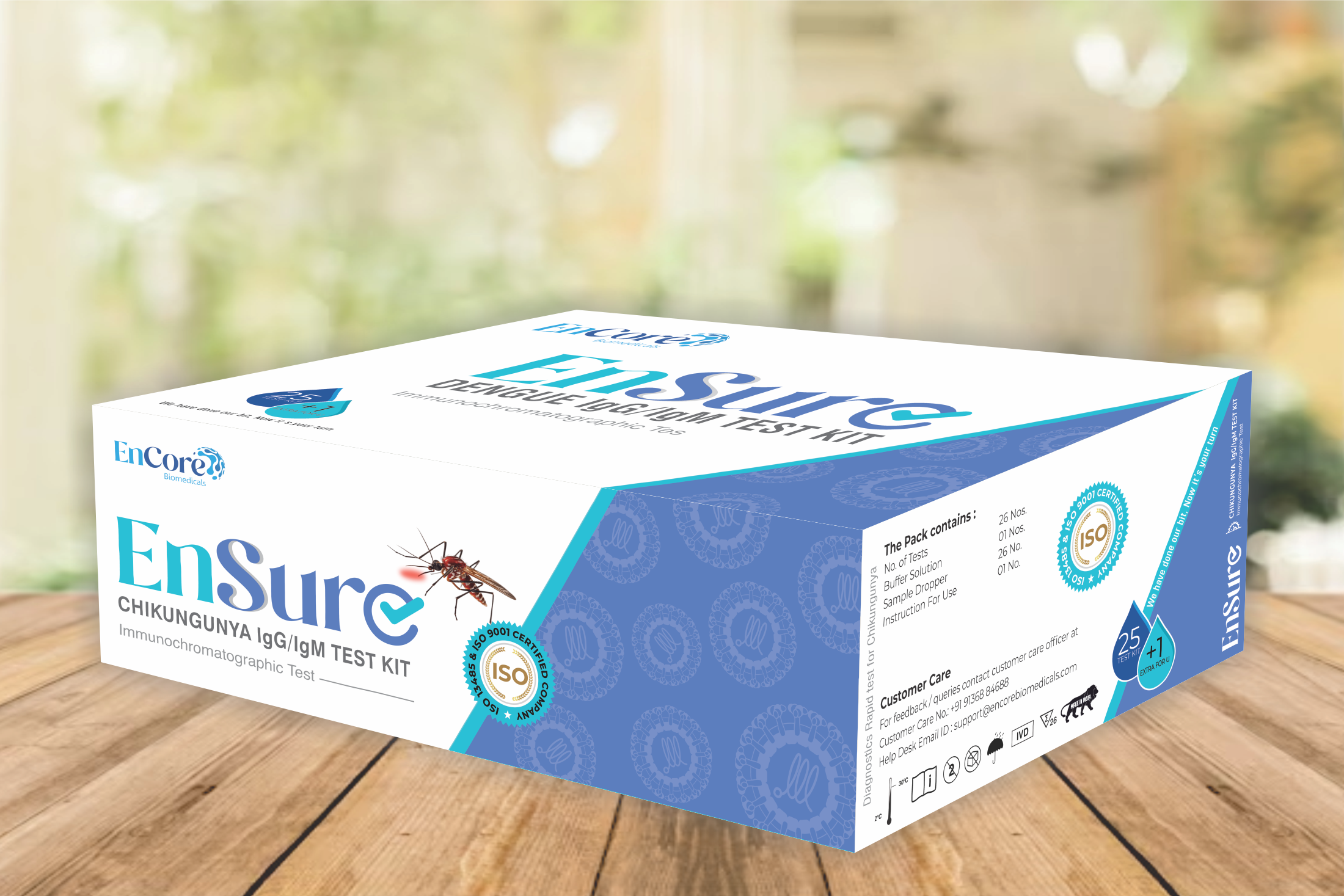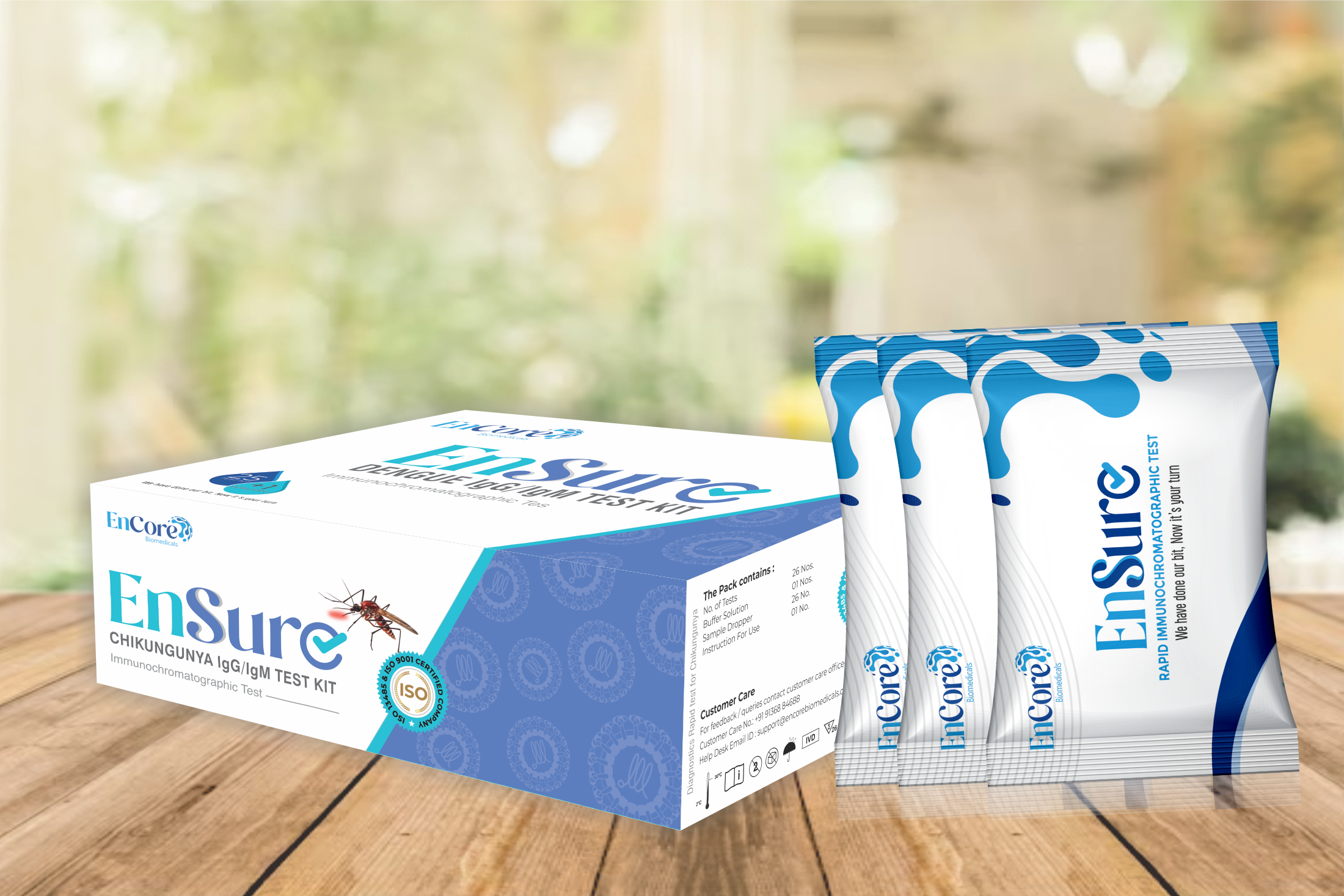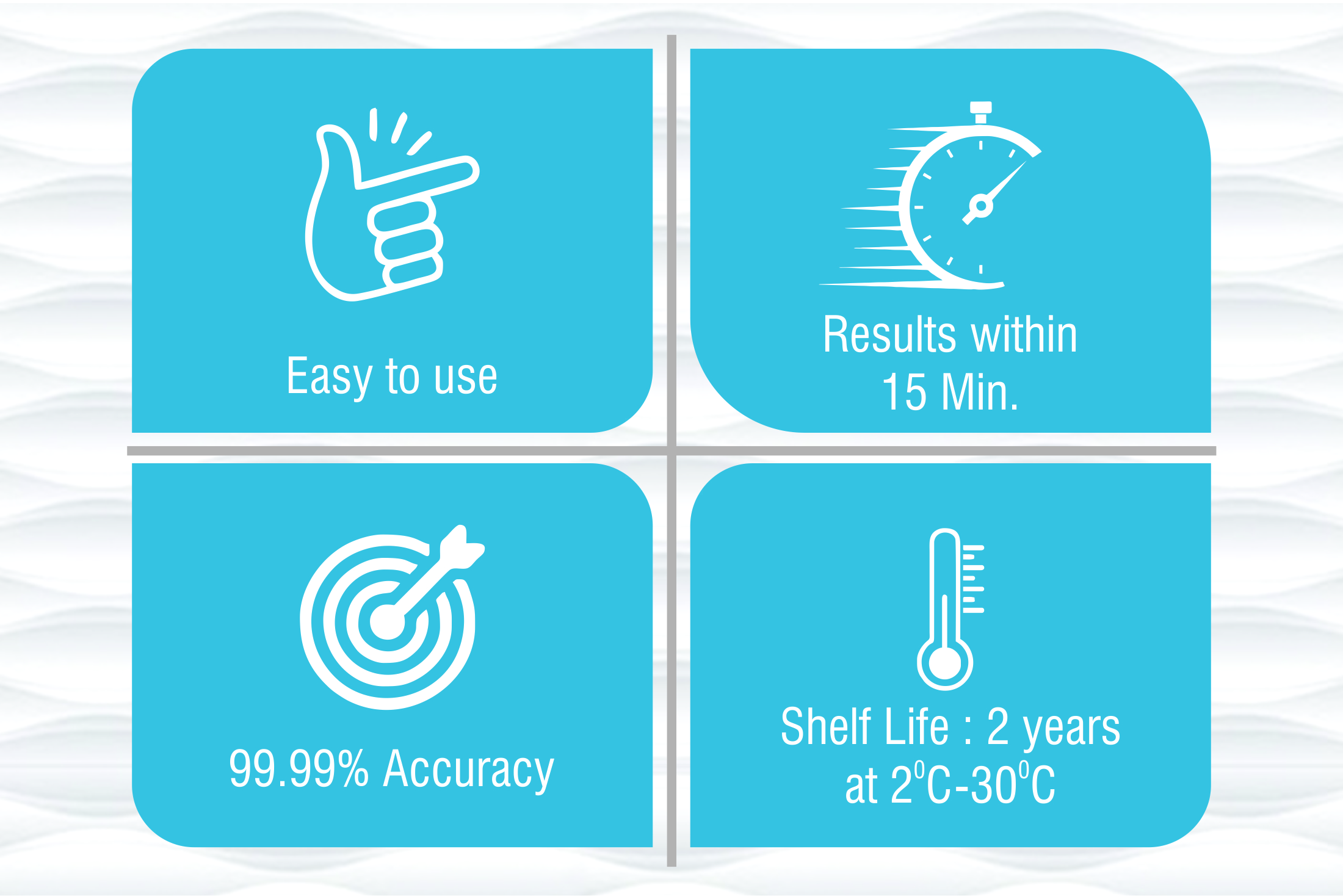Enssure Chikungunya IgG/IgM
Chikungunya is a rare viral infection transmitted by the bite of an infected Aedes aegypti mosquito. It is characterized by a rash, fever, and severe joint pain (arthralgias) that usually lasts for three to seven days. The name is derived from the Makonde word meaning 'that which bends up' in reference to the stooped posture developed as a result of the arthritic symptoms of the disease. It occurs during the rainy season in tropical areas of the world, primarily in Africa, South-East Asia, southern India and Pakistan. The symptoms are most often clinically indistinguishable from those observed in dengue fever. Indeed, dual infection of dengue and chikungunya has been reported in India. Unlike dengue, haemorrhagic manifestations are relatively rare and most often the disease is a self-limiting febrile illness. Therefore, it is very important to clinically distinguish dengue from CHIK infection. CHIK is diagnosed based on serological analysis and viral isolation in mice or tissue culture. An IgM immunoassay is the most practical lab test method.
Stock: IN
Chikungunya IgG/Igm
Product Information
Intended Use:
Chikungunya IgG/IgM is a rapid immunoassay for the qualitative detection of IgG and IgM antibodies to Chikungunya in whole blood, serum or plasma.
Principle
Chikungunya IgG/IgM is a membrane-based immunoassay detecting Chikungunya antibodies in whole blood, serum, or plasma. The membrane has pre-coated test lines with mouse anti-human IgG and IgM. During testing, the specimen reacts with colloidal gold-conjugated Chikungunya antigen, migrating along the membrane to generate colored lines with mouse anti-human IgG and IgM. A colored line at the control line region ensures proper specimen volume and membrane wicking, serving as a procedural control. Presence of colored lines at the test lines indicates a positive result, while their absence indicates a negative outcome.
Testing Procedure
Importance to know
Warnings and Precautions
-
Please read the instruction carefully before performing the test.
-
Do not use the test after the expiration date.
-
Immediately carry out the test after removing the test device from the pouch.
-
Do not mix or interchange the specimen sample.
Limitation
-
For in vitro diagnostic use only; detects Dengue antibodies in whole blood, serum, or plasma.
-
This test detects the presence of IgM antibodies to Chikungunya in the specimen and should not be used as the sole criterion for the diagnosis of Chikungunya
-
If the test result is negative and clinical symptoms persist, additional follow-up testing using other clinical methods is recommended. Also a negative results dose not preclude the possibility of an infection of Chikungunya.



